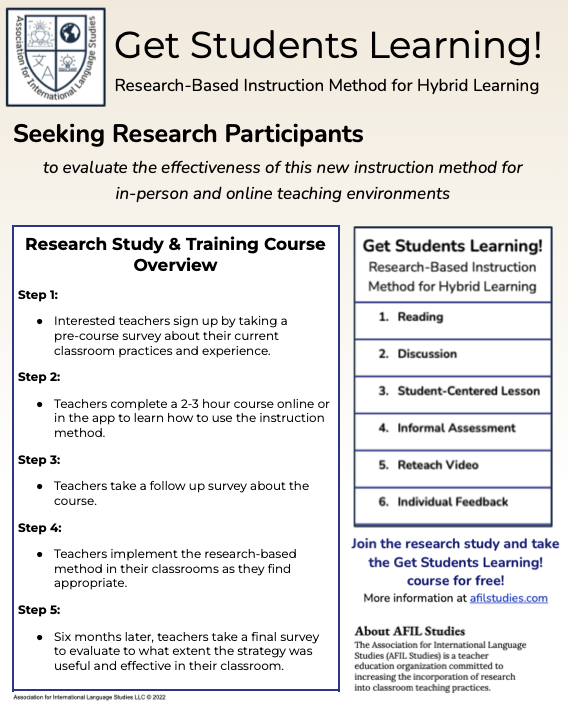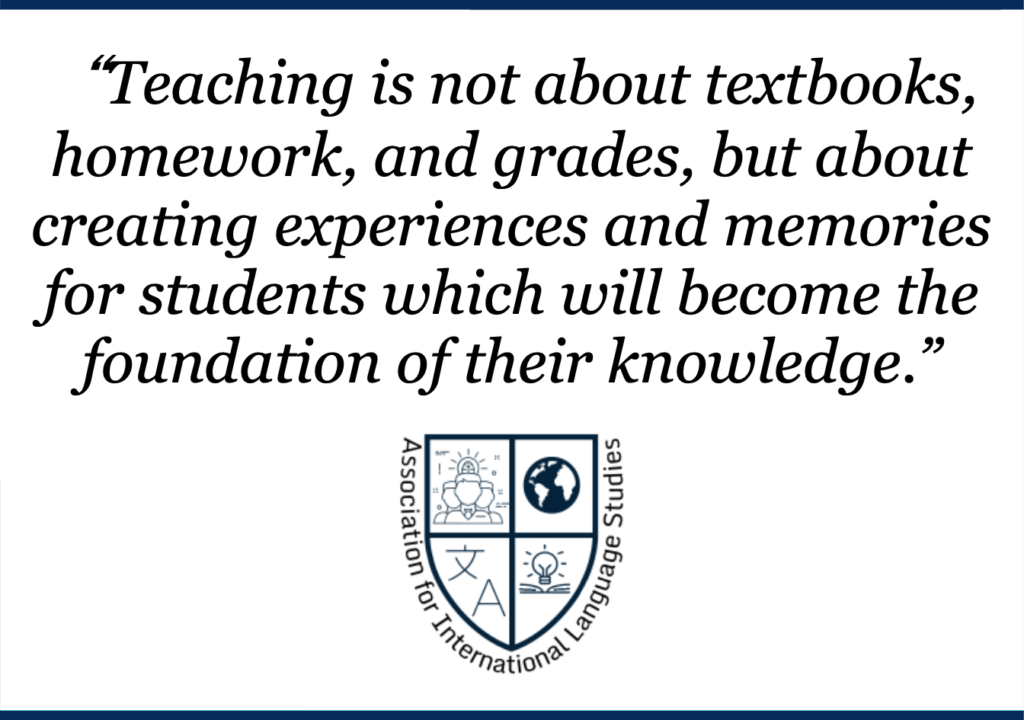Position:
Virtual Student-Teacher Intern
Organization:
Association for International Language Studies
Association for International Language Studies is a US company working internationally with universities, teacher training organizations, private schools and independent learners. We apply the most up-to-date and relevant research findings to the modern education space. We have more than 12 years experience in the education field.
No of Openings:
2
Period:
Typically 8 weeks. We are openly recruiting for interns that are able to start in the summer or fall. We are flexible based on your schedule and internship requirements. Longer internships are also available.
Is this a paid internship?
No. The internship is unpaid. However, you will gain valuable skills and experience, and professional references. We can work with your school to help fulfil any credit requirements. Additionally, you will have the option to pursue TEFL certification. Research candidates will be published upon program acceptance and proper completion of research requirements.
Schedule:
Typically 10-15 hours per week depending on your internship needs. Schedules are flexible. We can adjust based on your requirements.
Job Description:
We are looking for a part-time student-teacher intern to support our partners with their virtual ESL students. You will have the opportunity to study TEFL certification materials and complete hands-on student-teaching. Your trainer will observe lessons and provide feedback on how to improve your teaching skills. The internship is an excellent opportunity to learn more about teaching English as a second or foreign language, curriculum design, and the education field. Interns must be at least a 2nd year in university. Due to the virtual aspect of this internship, we are seeking self-motivated and friendly individuals with a passion for working with people. Students seeking internships in education, psychology, and sociology are highly encouraged to apply. However, all majors will be considered.
Duties and Responsibilities:
- Model English in virtual classroom settings
- Support, creation, and facilitation of English language acquisition activities including communication based lesson plans
- Plan and prepare classroom materials (digitally)
- Participate in meetings for planning and discussions of lessons and targets
- Develop communication skills by working with teachers, trainers, and students
- Learn and understand the logistics and components of planning and running a foreign language lesson
- Learn how to use specific tools (Zoom, Google Meet, etc) for virtual learning
- Determine if TEFL/ESL education is the correct path for you
- Develop planning and organizational skills related to work projects
Academic Outcomes:
- TEFL Certification
- Record the use of theories and approaches
- Apply a teaching method in a lesson and observe outcomes
- Analyze different approaches based on student levels and abilities
To Apply:
Please contact us through the website to apply with the following information:
- Which internship position you are interested in
- Prefered start date
- Details or requirements of your internship, if any
- What you hope to do or learn during this internship
Successful applicants will be contacted to arrange an online interview.



